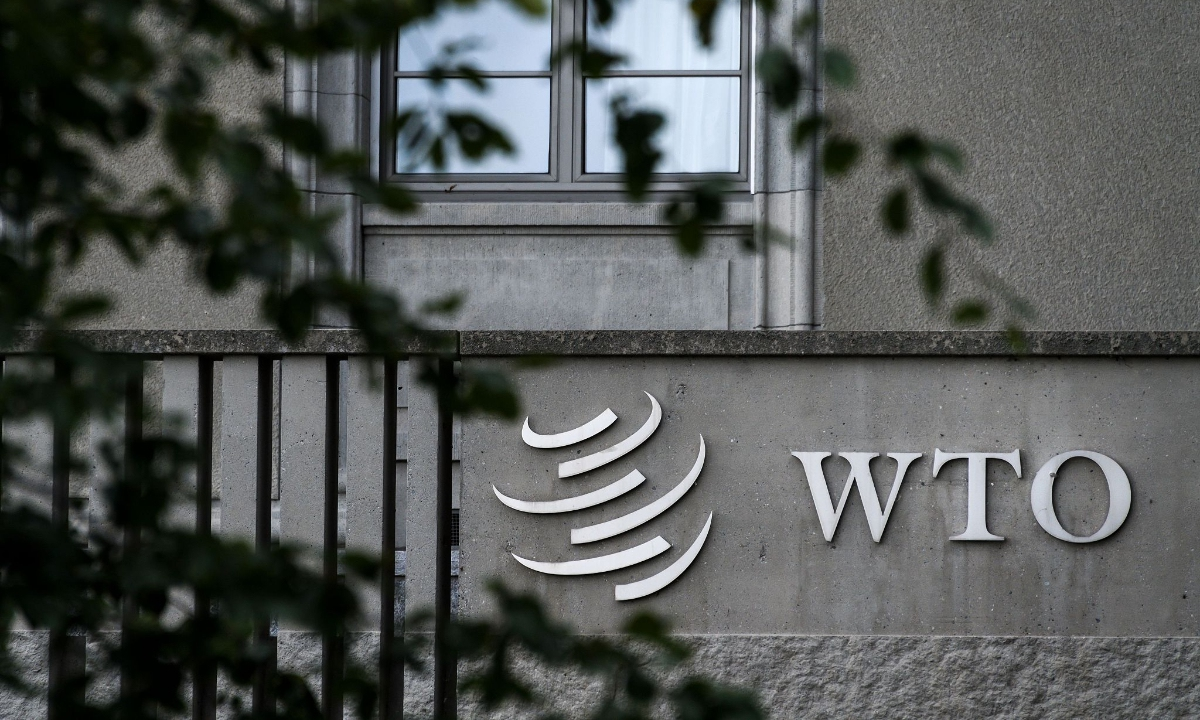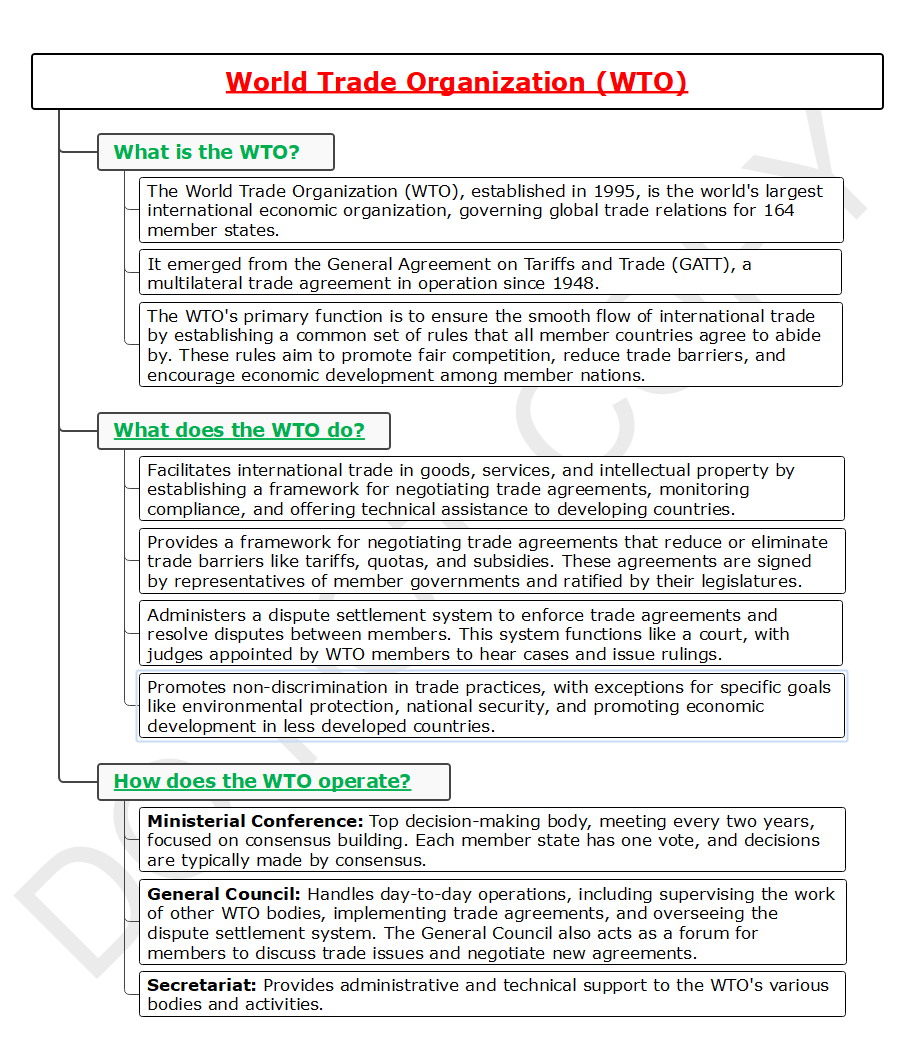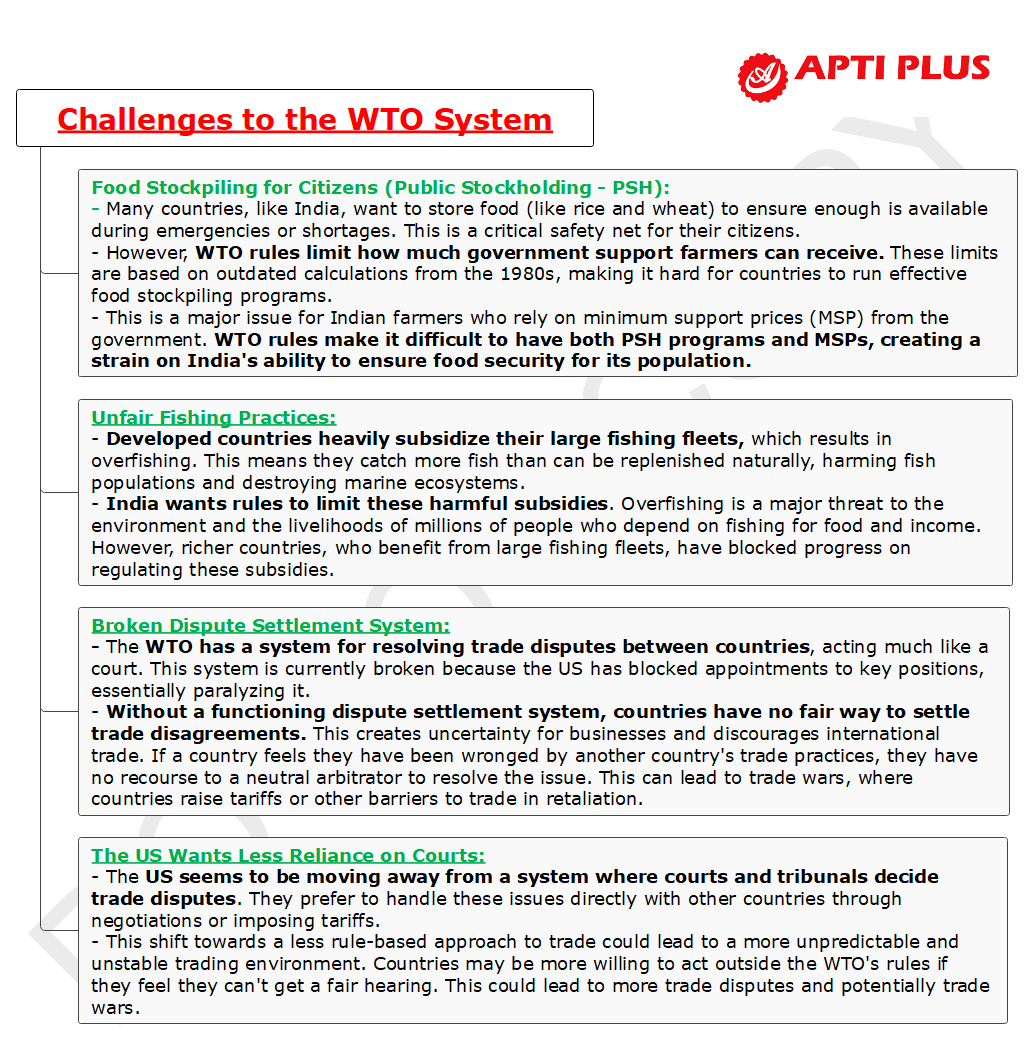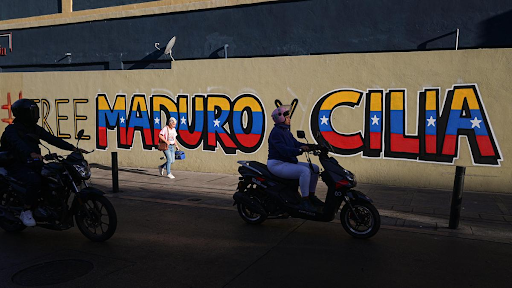Description

Copyright infringement not intended
Picture Courtesy: https://www.globaltimes.cn/page/202402/1307678.shtml
Context: The 13th WTO ministerial meeting ended without progress on matters such as public stockholding programmes, reflecting member nations' disagreements over sovereign rights and WTO standards.
World Trade Organization (WTO)
- The WTO emerged from the General Agreement on Tariffs and Trade (GATT), established in 1947.
- GATT was intended to be temporary, paving the way for a more comprehensive International Trade Organization (ITO) under the United Nations. However, the ITO never materialised. Despite its provisional status.
- GATT initially focused on reducing tariffs and quotas on merchandise trade. Through various negotiation rounds, it expanded its scope to include trade in agriculture and textiles. It also incorporated additional codes and agreements on topics like subsidies, product safety, and technical trade barriers.
Establishment of the WTO
- Following the Uruguay Round of trade negotiations (1986-1994), the WTO was officially established in 1995. The WTO inherited the core agreements of GATT 1947 and incorporated new agreements like GATS (trade in services) and TRIPS (intellectual property). These agreements reflected the growing importance of these sectors in the global economy.
- The WTO also established a permanent Secretariat to handle the day-to-day operations of the organisation and a more robust dispute settlement mechanism to provide a forum for resolving trade disputes between member countries.

The WTO pursues six key objectives:
- Setting and enforcing international trade rules: The WTO establishes a common set of rules that govern international trade between member countries. These rules aim to promote fair competition, reduce trade barriers, and ensure smooth trade flows.
- Providing a forum for further trade liberalisation negotiations: The WTO provides a platform for member countries to negotiate further reductions in trade barriers and explore new areas of trade liberalisation.
- Resolving trade disputes between member countries: The WTO's dispute settlement mechanism provides a neutral forum for adjudicating trade disputes between member countries. This helps to ensure that trade rules are interpreted and applied fairly.
- Increasing transparency in trade policies: The WTO encourages member countries to be transparent about their trade policies and practices. This transparency helps to build trust and confidence in the global trading system.
- Cooperating with other international economic institutions: The WTO cooperates with other international organisations like the World Bank and the International Monetary Fund to promote coherence and consistency in global economic policies.
- Helping developing countries integrate into the global trading system: The WTO recognizes the need to help developing countries participate more effectively in the global trading system. The organisation provides technical assistance and capacity-building programs to support developing countries.

Way Forward
- The WTO needs to find solutions to these challenges or it may become irrelevant. The organisation needs to adapt to address the concerns of developing countries and find a solution to the dispute settlement crisis.
- All member countries, especially the US, need to cooperate in finding solutions. The WTO relies on consensus from all members to function effectively. If countries are unwilling to compromise, the organisation will struggle to make progress.
- Possible solutions include reforming the dispute settlement system, addressing food stockpiling issues by updating WTO rules to reflect the needs of developing countries and regulating fishing subsidies to promote sustainable fishing practices.
Must Read Articles:
13th Ministerial Conference (MC13) of the World Trade Organization (WTO): https://www.iasgyan.in/daily-current-affairs/13th-ministerial-conference-mc13-of-the-world-trade-organization-wto#:~:text=Location%20and%20Dates%3A%20Held%20in,reform%20agenda%20for%20the%20WTO.
|
PRACTICE QUESTION
Q. The core objective of the World Trade Organization (WTO) is to promote trade liberalisation. However, some argue that this can come at the expense of environmental protection. How can the WTO strike a balance between promoting trade and ensuring sustainable development, especially considering the growing urgency of climate change?
|













